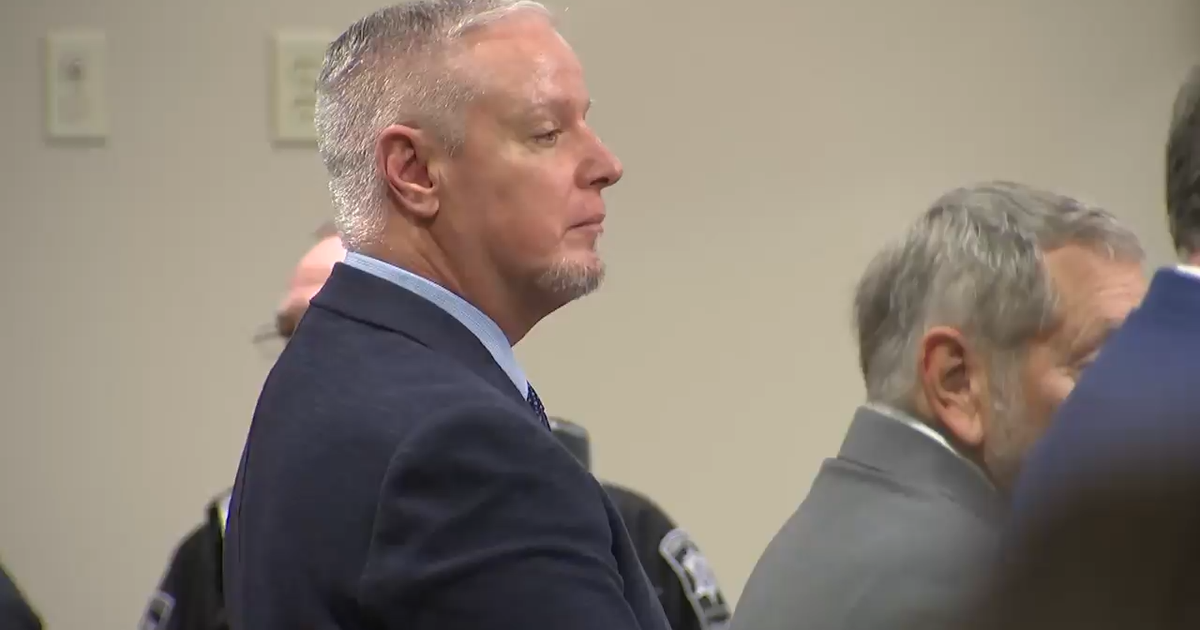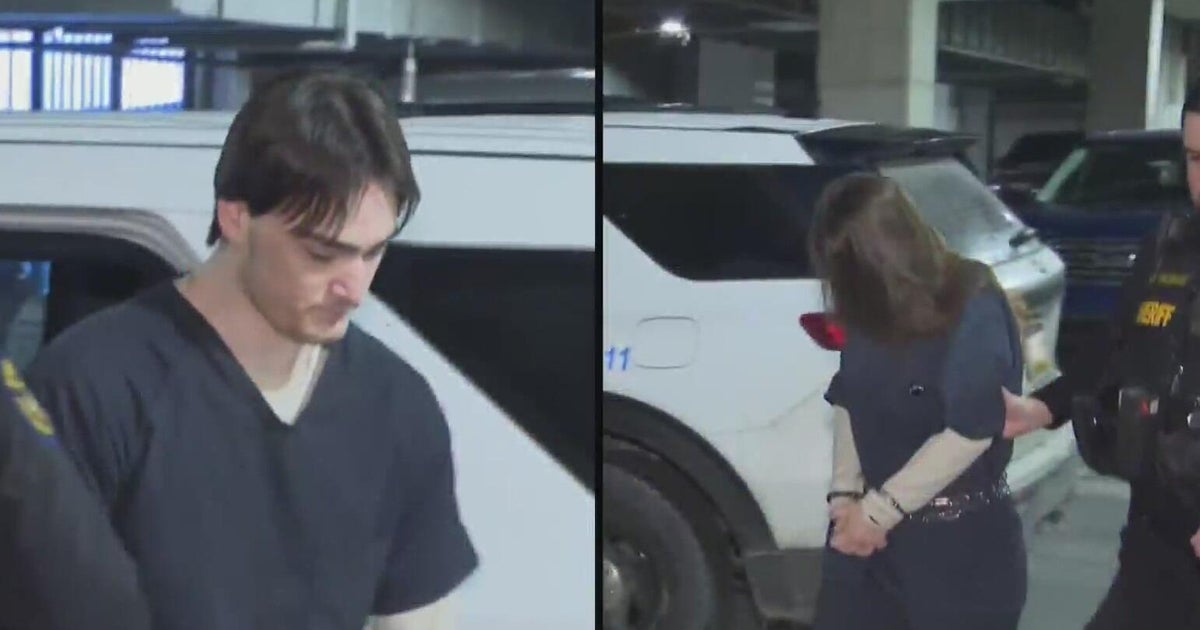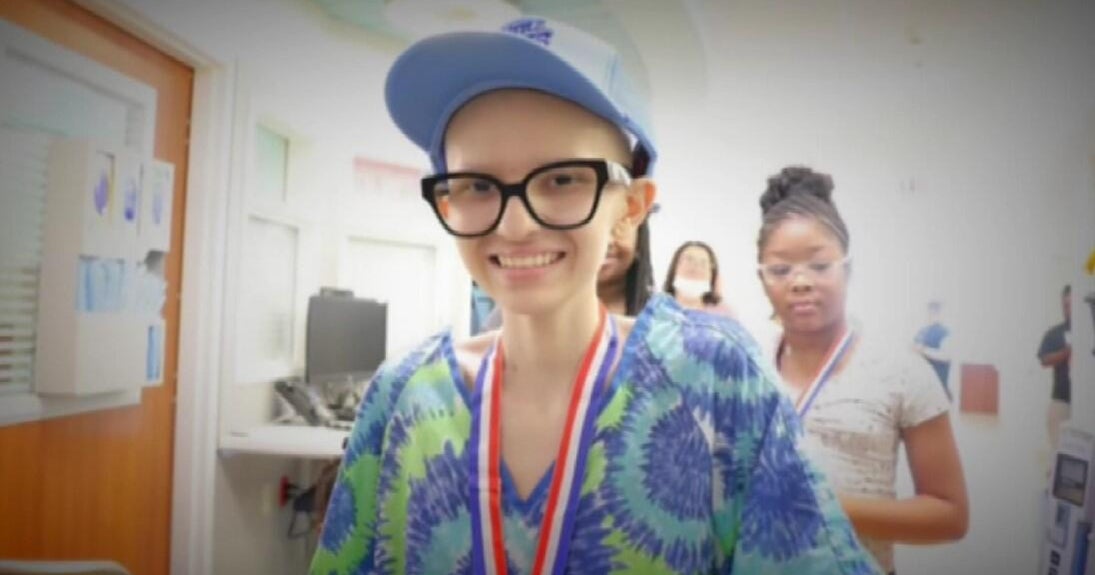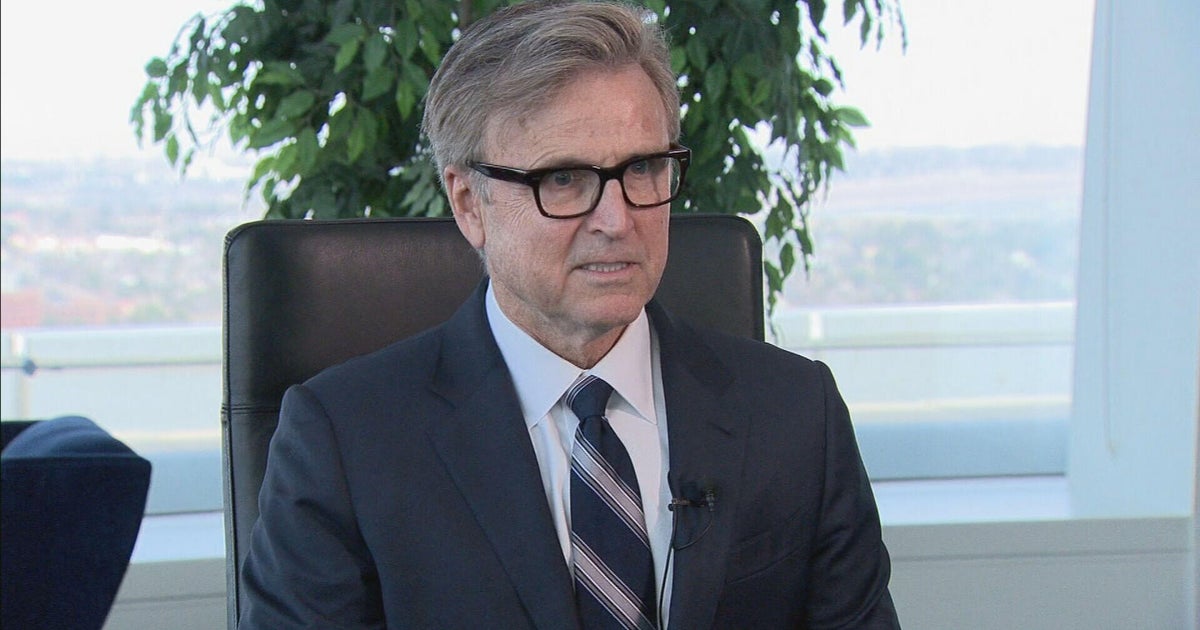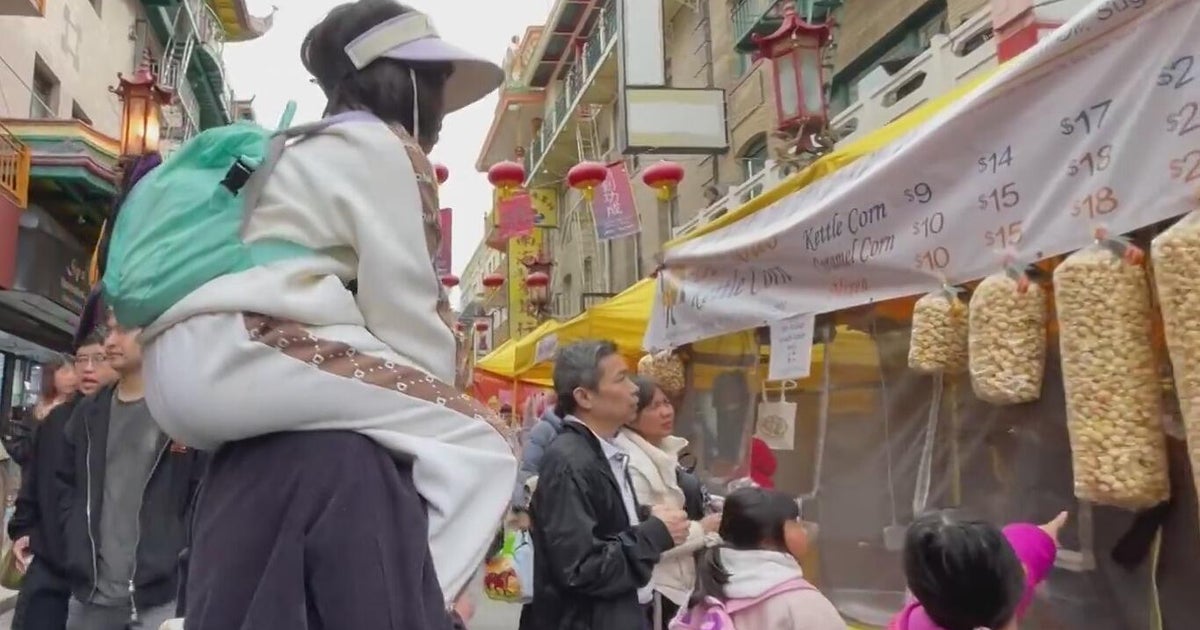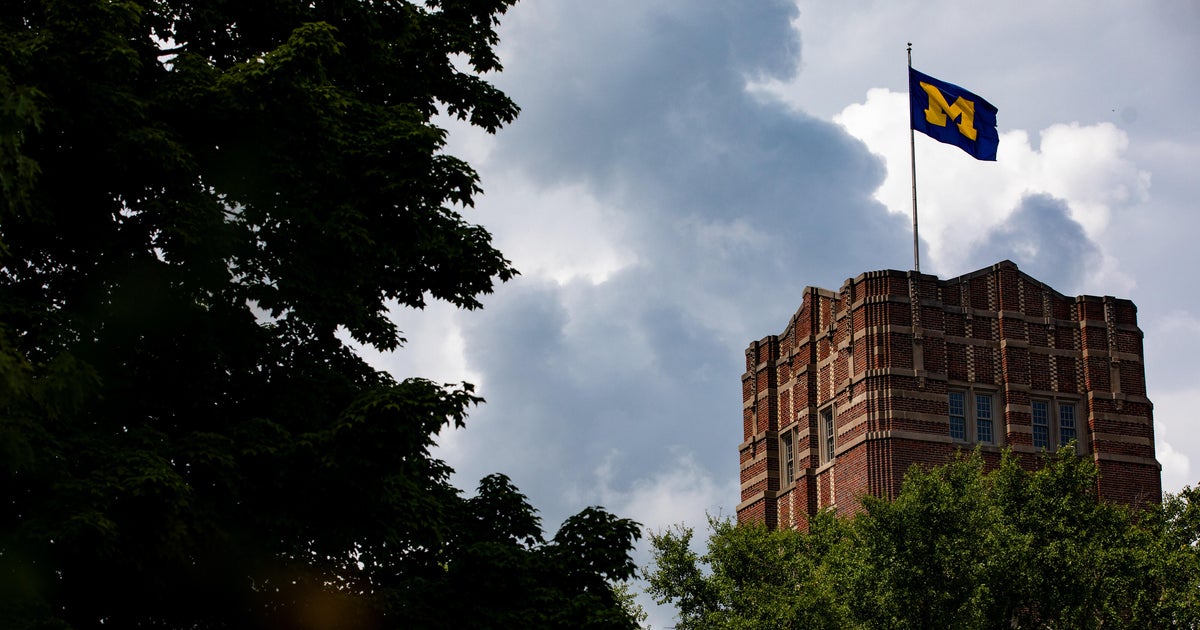Prosecutors Claim Bonds Knew He Was Doing Drugs & Lied; Trainer Won't Testify
SAN FRANCISCO (CBS 5 / KCBS) -- A federal prosecutor told jurors in the perjury trial of Barry Bonds in San Francisco Tuesday that Bonds lied in his testimony before a grand jury in 2003, saying it was "ridiculous and unbelievable" that he could have thought he was taking flax seed oil and arthritis cream when his personal trainer gave him steroids.
>> CBS 5 Reporter Joe Vazquez Twitter Updates From Bonds Trial
But a significant portion of the government's case against baseball's home-run champion was also undercut later Tuesday when Bonds' former trainer again refused to testify and was sent to jail for the duration of the trial for contempt of court.
U.S. District Judge Susan Illston has ruled much of the evidence tied to Greg Anderson, a key witness who allegedly provided Bonds with performance-enhancing drugs and detailed instructions on how to use them, is off limits without his testimony.
Earlier in opening statements, Assistant U.S. Attorney Matthew Parrella told the eight-woman, four-man jury that Bonds could easily have answered questions truthfully in his 2003 testimony, but didn't.
KCBS' Bob Melrose Reports:
"All he had to do was tell the truth. That's all. But he couldn't do it," Parrella said, noting that the government had promised not to prosecute Bonds for drug use if he testified truthfully.
But Bonds' lead attorney, Allen Ruby, maintained Bonds did tell the truth in his two hours of testimony before the grand jury on Dec. 4, 2003. He said a "word-for-word account" in the testimony transcript will show that to be the case.
"Barry answered every question, he told the truth, he did his best," Ruby said, objecting to the "ridiculous and unbelievable" characterization of the former slugger's defense.
Ruby, who in addition to being a lawyer is a former professional wrestling announcer, acknowledged in a deep baritone that Bonds did take two designer steroids called the "cream" and the "clear." But Bonds did so unwittingly, Ruby contended, saying Anderson misled him into believing he was taking flax seed oil and arthritis cream.
"I know that doesn't make a great story," Ruby said, "but that's what happened."
Ruby said the transcript of Bonds' testimony would also show that Bonds "provided the grand jury with useful information" for the panel's investigation of Bay Area Laboratory Co-Operative, or BALCO, a Burlingame-based company at the center of an international sports doping ring.
Bonds, 46, faces four counts of making false statements and one count obstruction of justice. He has pleaded not guilty to all the charges — originally filed in 2007.
He is accused of lying when he told the grand jury that he never knowingly received anabolic steroids, human growth hormone or an injection from Anderson.
Parrella told the trial jury that, as is routine with grand jury witnesses, Bonds was offered immunity from prosecution for anything he told the grand jury in 2003.
However, the federal attorney said that prosecution evidence would show not only that Bonds failed to tell the truth despite the immunity offer, but that "he planned not to do it."
Dressed in a dark suit with a light blue shirt, Bonds sat slouched in his chair in the courtroom, his long legs crossed at the ankles and poking out the other side of the defense table, while watching Parrella tell jurors that a childhood friend of Bonds would discuss watching him inject steroids.
Parrella promised other witnesses would discuss conversations they had with Bonds about his steroid use. He said there would be "testimony from people who knew him for decades what the defendant what he was doing."
Those witnesses were to include Bonds' former girlfriend, Kimberly Bell; his former assistant and childhood friend, Steve Hoskins; and Hoskins' sister Kathy, who was a personal shopper for Bonds and allegedly saw Anderson give Bonds an injection, Parrella said.
In addition to eyewitness testimony, he said prosecutors would present circumstantial evidence showing that Bonds experienced the side effects of taking steroids.
But the defense countered by trying to discredit some of the government witnesses scheduled to testify, saying at least two had axes to grind because of bitter fallouts with Bonds.
Ruby alleged that Bell and Hoskins, were "facing the loss of the financial benefit that Barry provided to them over the years" when Bond ended his relationships with them in 2003.
Bell planned to testify that Bonds admitted to her he took steroids. She was also to testify to physical and mental changes she said Bonds experienced and that prosecutors attribute to steroid use.
But again in a deep baritone, Ruby told the jury that "after the break up Ms. Bell was extremely unhappy," suggesting she had motivation to unfairly denigrate Bonds. Ruby added that Hoskins had somewhat similar motives as Bell.
The trial was expected to last about four weeks and prosecution testimony began Tuesday afternoon.
Anderson was slated to be called to the stand as the first prosecution witness, but instead he left the Federal Building courtroom escorted to jail by U.S. marshals, with his attorney, Mark Geragos, promising an appeal to the judge's contempt finding.
Anderson previously spent more than a year in jail for contempt of court for also refusing to testify before a grand jury in 2006 investigating Bonds' alleged perjury.
He also served three months in prison after pleading guilty in 2005 to steroid distribution and money laundering.
Bonds and Anderson were often together during Bonds' heyday and the pair grew up together in San Mateo County. On Tuesday though, Bonds looked away as Anderson passed him in the courtroom.
>> Photo Galley: Barry Bonds Through The Years
The judge later read a special instruction to the jury about Anderson's absence from the trial.
"Greg Anderson is unavailable to both parties to testify in this trial," Illston said. "You may not speculate as to the cause of his unavailability. You may not consider the absence of his live testimony as evidence in deciding the facts of this case, nor may you draw any inference from his failure to testify."
Bonds is the last of 11 defendants who were charged in federal court in San Francisco with either illegal drug distribution or lying in connection with the BALCO probe.
Parrella on Tuesday tried to show a deep connection between Bonds and BALCO. He displayed a photograph taken from a magazine of Bonds, BALCO founder Victor Conte and Anderson and called the trio the "Three Musketeers of BALCO," drawing an objection from Ruby.
Like Anderson, Conte pleaded guilty to steroids distribution after a 2003 government raid on BALCO.
During afternoon trial testimony, lead government investigator Jeff Novitzky recounted for the jury the start of the BALCO probe. After receiving a tip and examining BALCO finances, Novitzky said he began to root through the lab's trash every Monday night for about a year and found incriminating evidence tying famous athletes to BALCO and steroid use.
Bonds hasn't played baseball since being indicted after the conclusion of his 2007 season, when he set a Major League Baseball career record of 762 home runs.
Bonds, a former San Francisco Giants and Pittsburgh Pirates outfielder, also holds the mark for home runs in a single season, with 73 in 2001.
(Copyright 2011 by CBS San Francisco. All Rights Reserved. This material may not be published, broadcast, rewritten, or redistributed. Wire services may have contributed to this report.)

